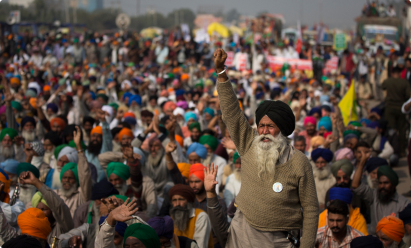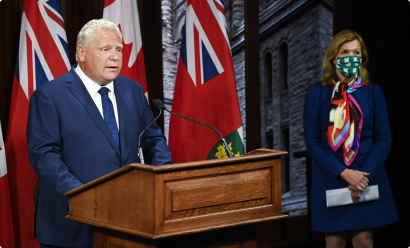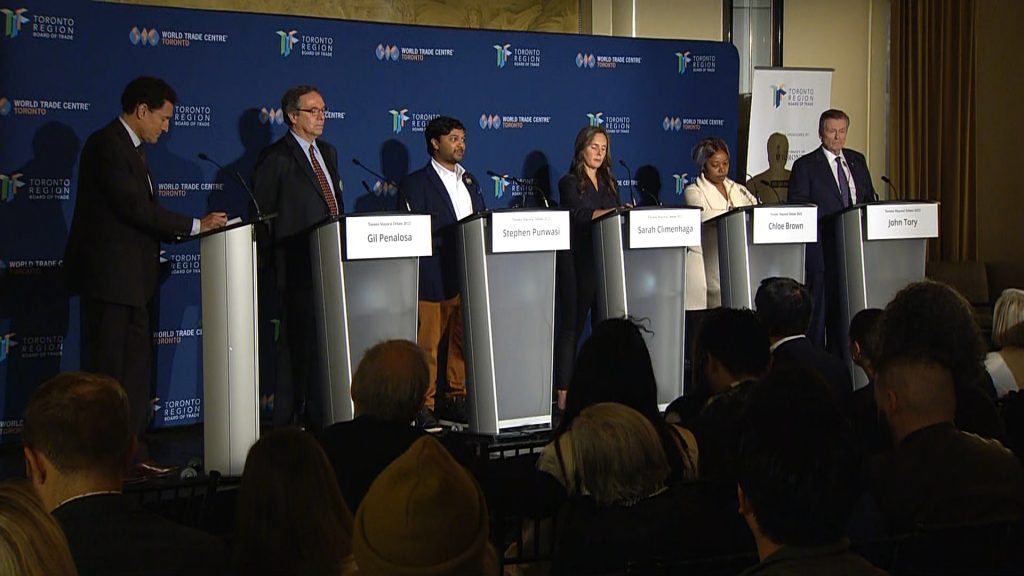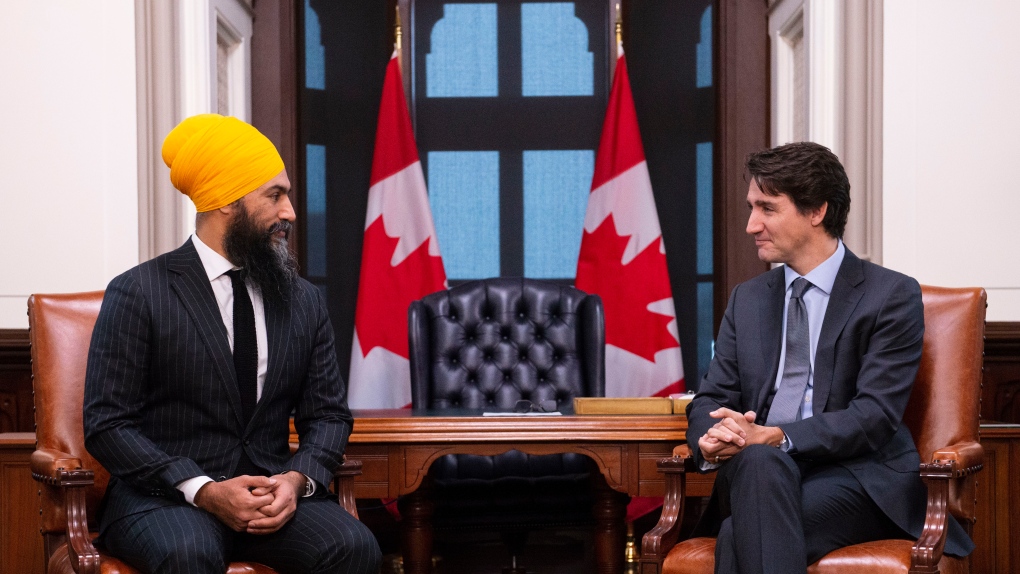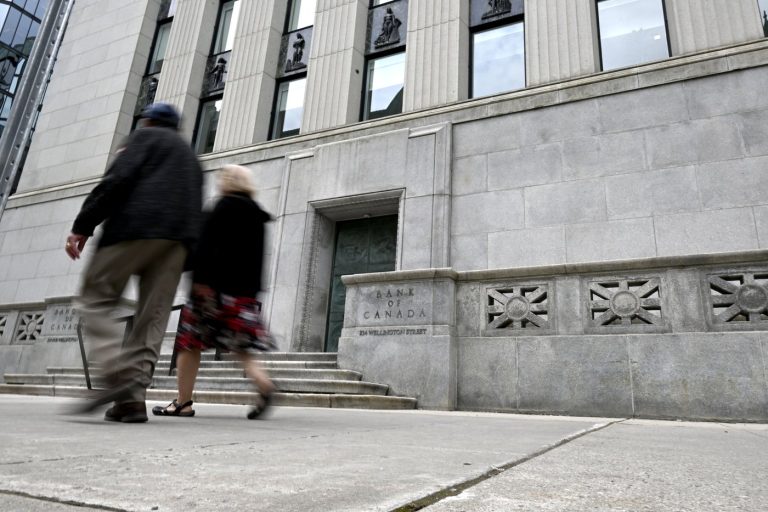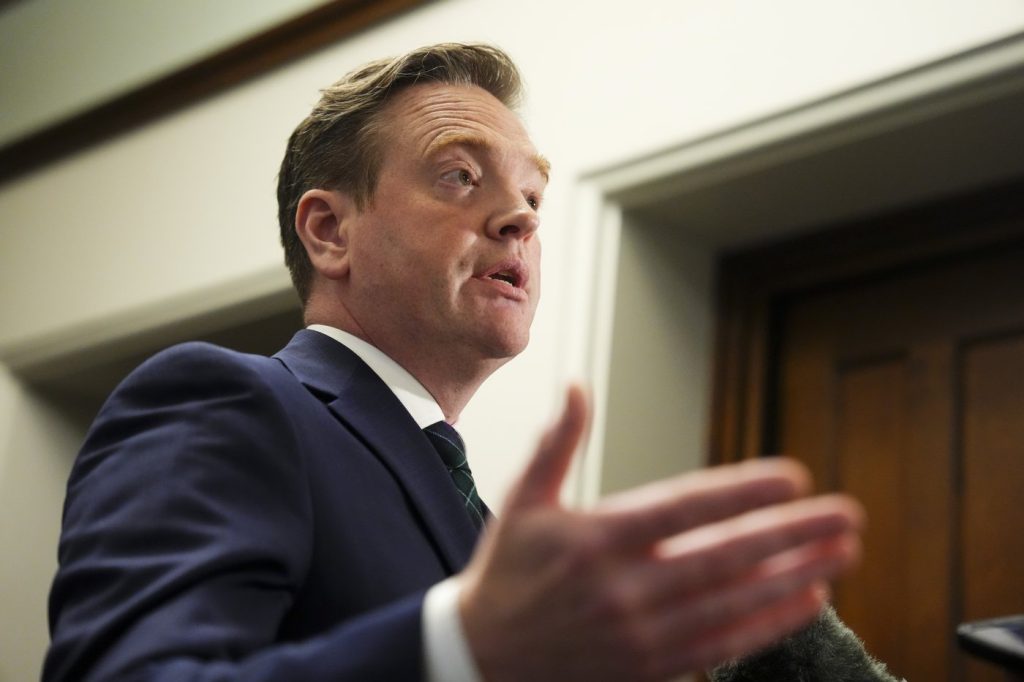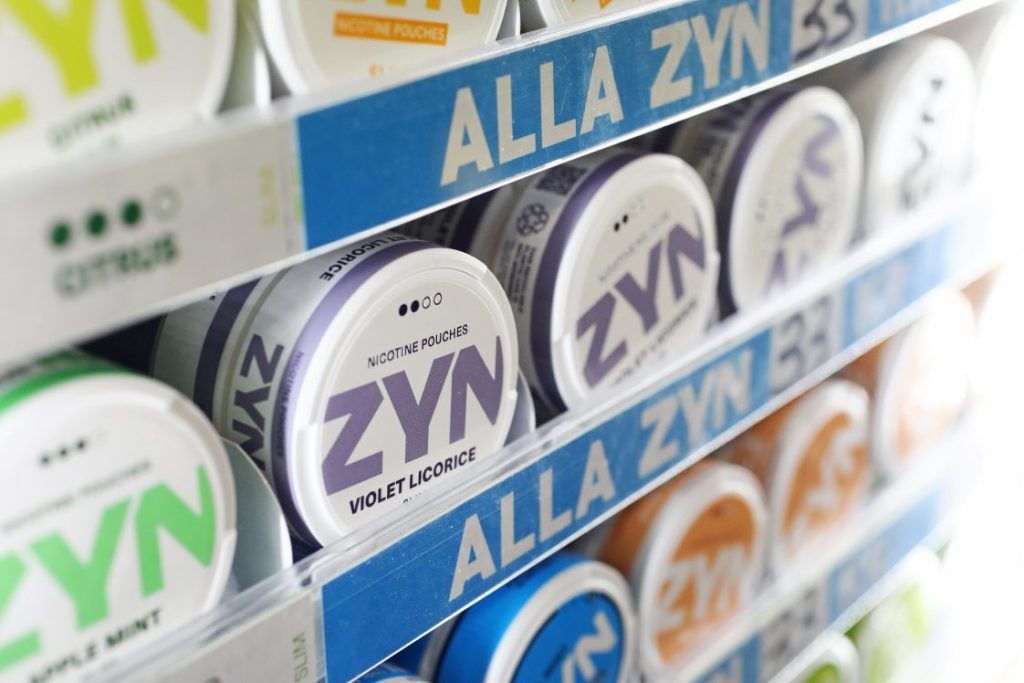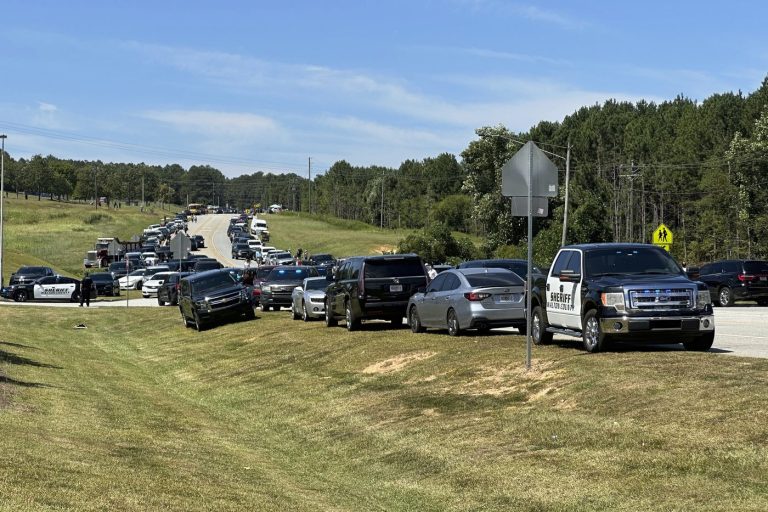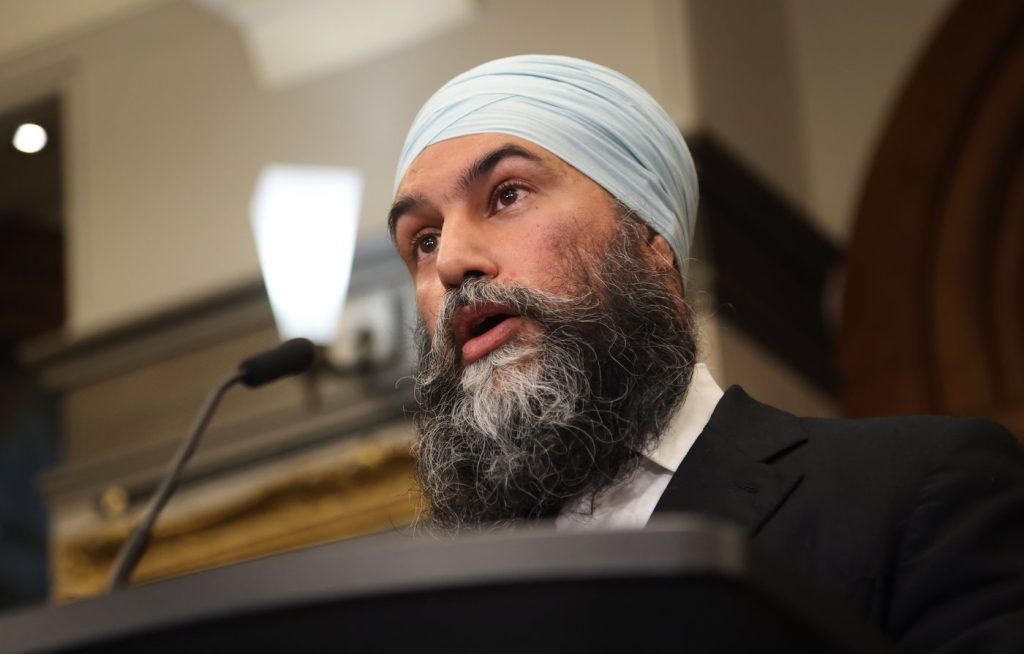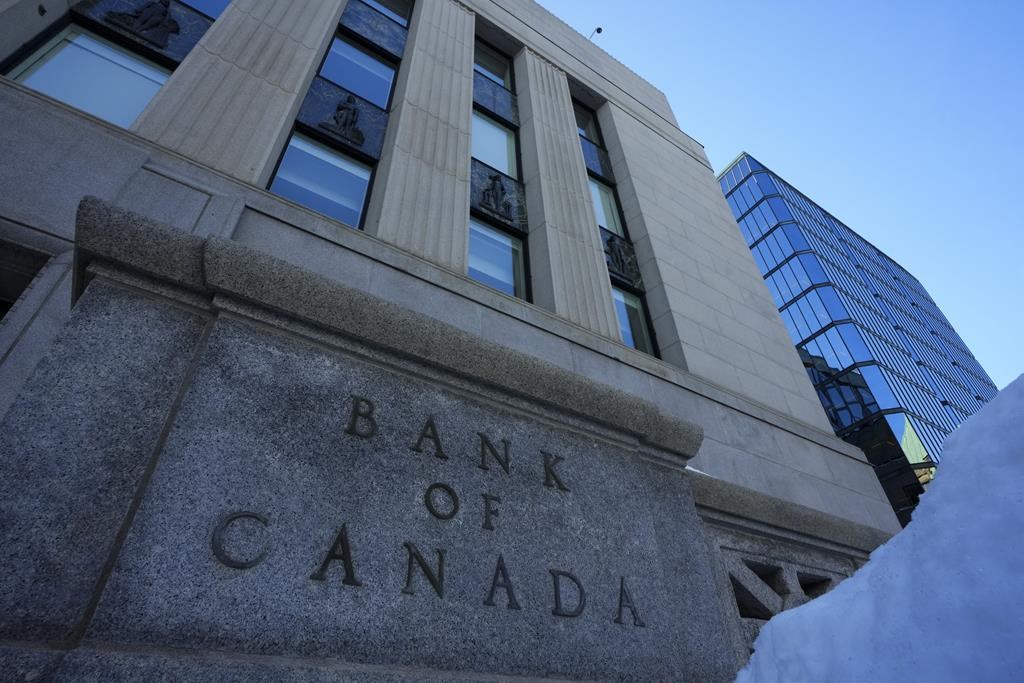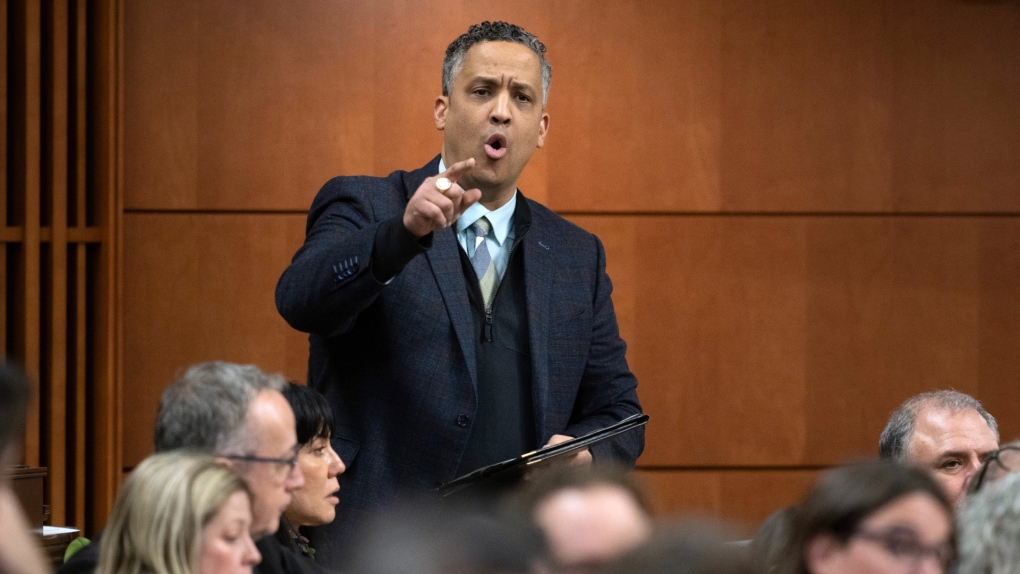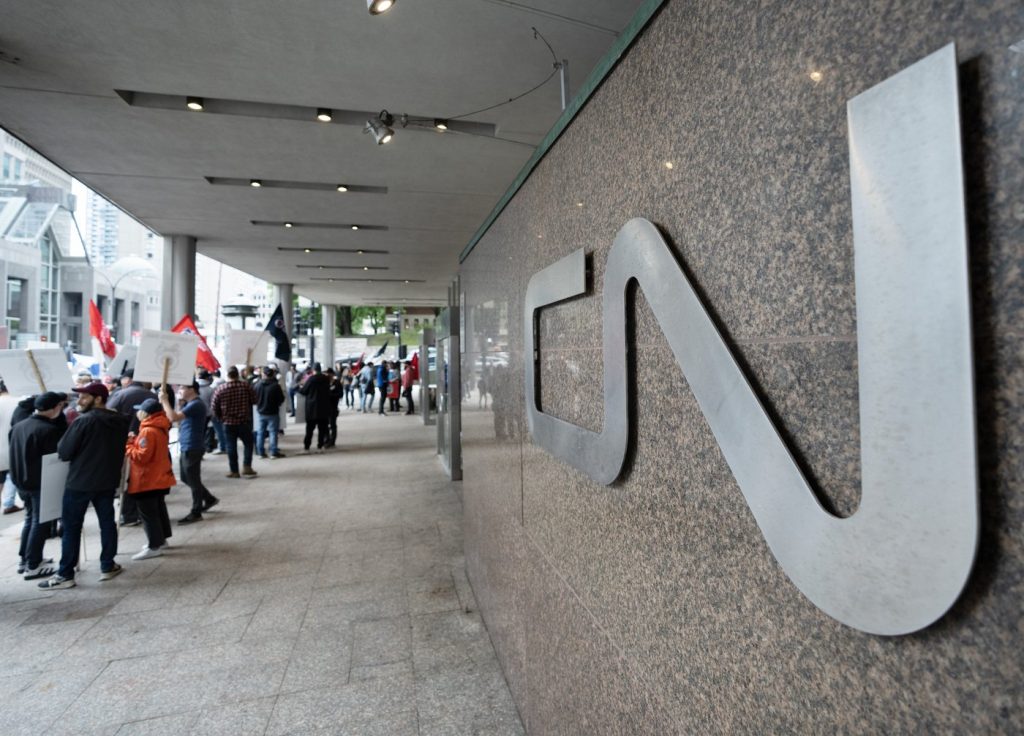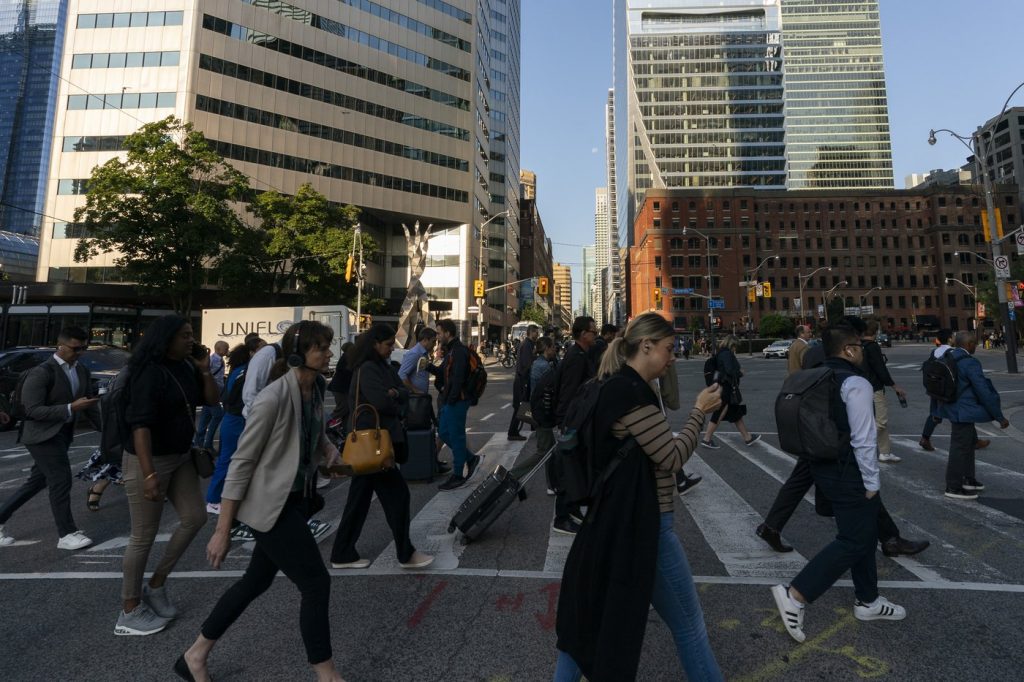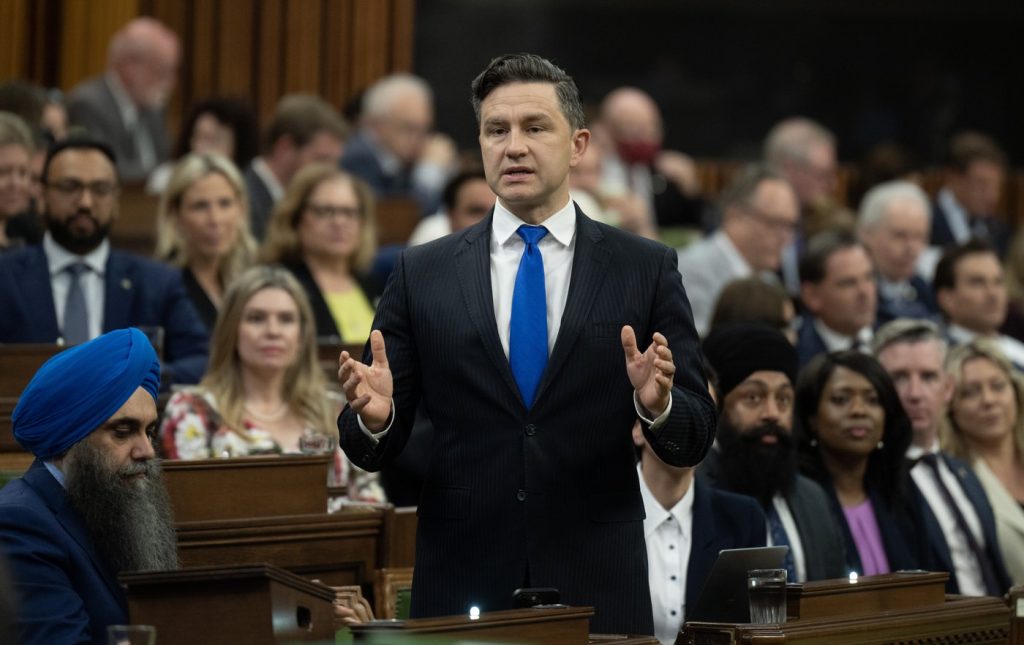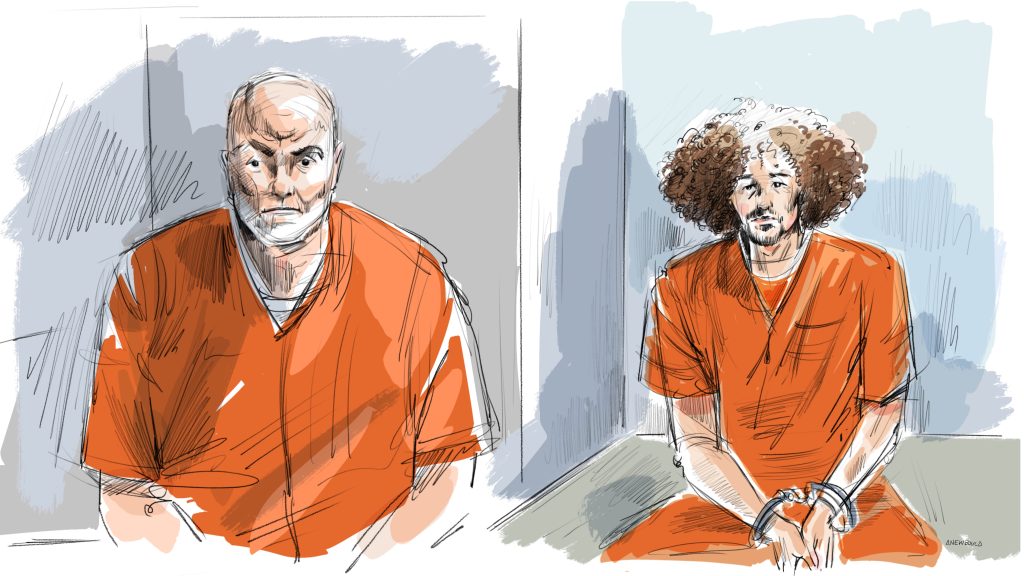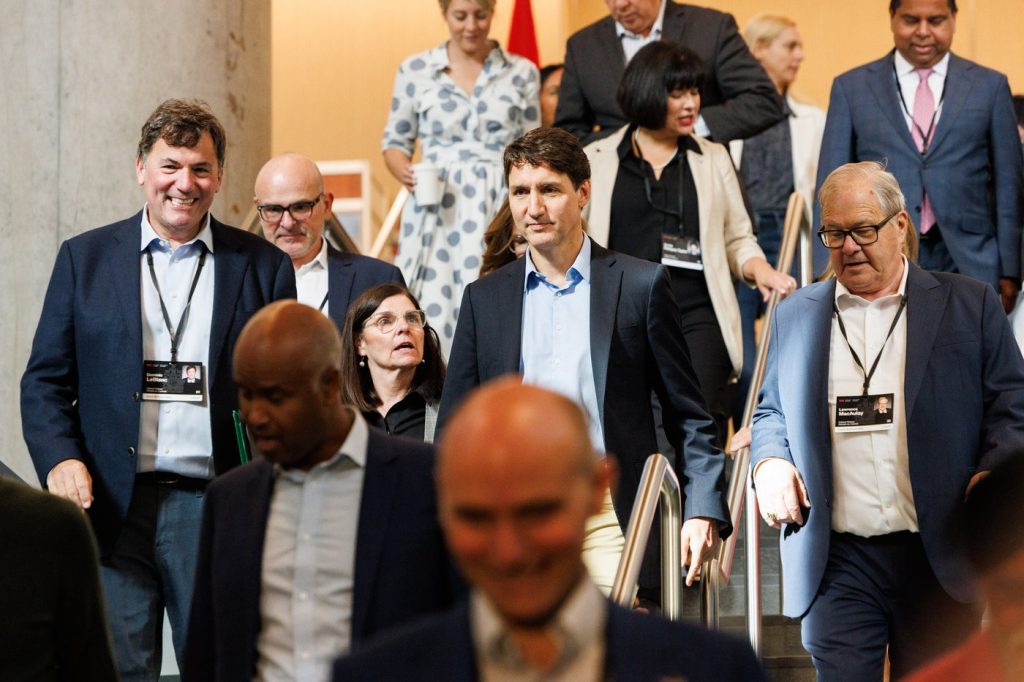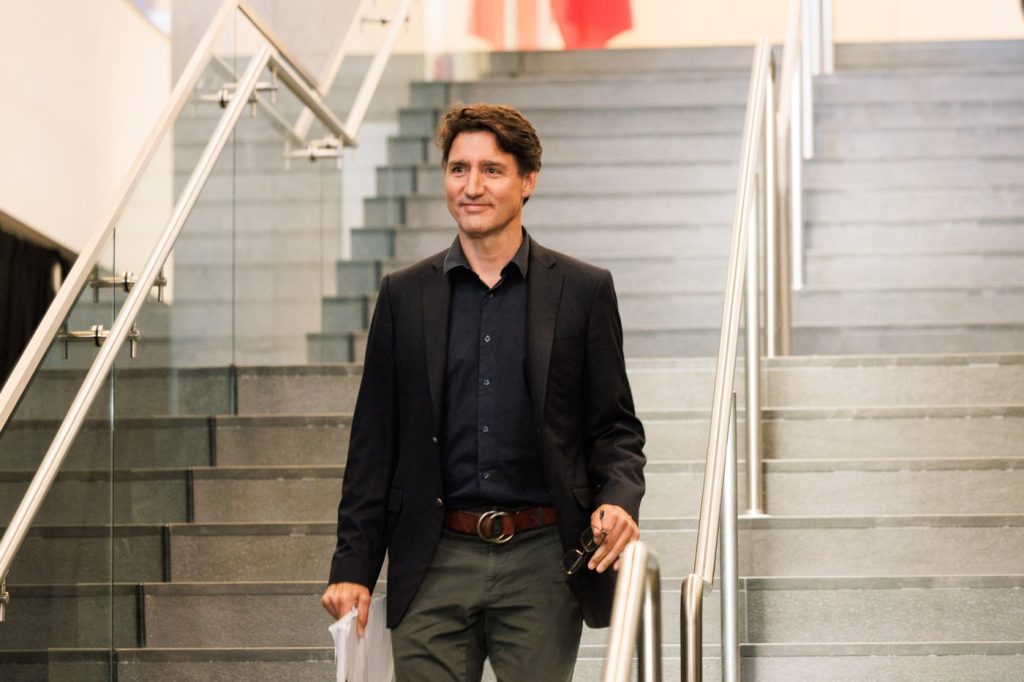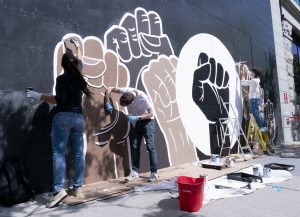Torontonians head to the polls on Oct. 24 to vote for who they want to become mayor for the next four years. While incumbent John Tory is expected to be re-elected to a third term, other candidates have been challenging.
Four other candidates are seen as the main contenders to Tory out of a pool of close to 30 who are in the running. They include Chloe Brown, Sarah Climenhaga, Gil Penalosa and Stephen Punwasi, all of whom participated in a debate hosted by the Toronto Region Board of Trade.
Here is how all five of these mayoral candidates have promised to act on major issues affecting the city.
Housing
Some of the promises each candidate has made related to housing are the following:
Chloe Brown
- Create a program called RentSmart that would be the first tenant-facing system to centralize all rental units and tenants into one platform;
- Restore democratic housing models using tenant-first policies, projects, and public boards;
- Develop an effective local development strategy that requires planners to work across departments and to empower residents and businesses to monitor and assess the plan;
- Transform more single-family homes into a diverse mix of homes and mixed-income communities;
- Decommission CreateTO, Build Toronto, the Resilience Office, Customer Experience Transformation & Innovation, and the Toronto Port Lands Company and upload projects to Infrastructure and City Construction;
- Decommission the Open Door Affordable Housing Program, Housing Secretariat, the role of the Rooming House Licensing Commissioner and Deputy Commissioner will be transferred to the Shelter, Support, and Housing Administration (SSHA) for the purpose of managing rentals and developing public housing;
- Under the management of Planning and Development, combine Building & Construction and Corporate Real Estate Management to manage the City’s real estate portfolio;
Sarah Climenhaga
- Build on the many expert reccomendations, staff reports and great ideas on what to do to increase housing in the city and provide the political will and use a collaborative approach to secure resident support to get these proposals into action.
Gil Penalosa
- The following ideas have been proposed for renters:
- Strengthen the RentSafeTo program and introduce the colour coded RentSafe signs;
- Establish rent control in all units that receive any city funding and advocate for the Province to bring back rent control for all tenants.
- Enact a maximum temperature by-law of 26 C in apartment units;
- Double the city’s tenant defence fund to provide more legal support for renters to fight unfair Above the Guideline Rent Increases.
- The following have been proposed for housing developmentsCreate 100 per cent affordable housing on city-owned land, 2/3 of which would be affordable (80 to 100 per cent of CMHC average market rate) and 1/3 of which would be “deep affordable” (30 per cent of income for Ontario Works and Ontario Disability Support Payment recipients);
- All development on all public land where possible and work with the provincial and federal government to allow affordable housing on LCBOs, Canada Post and other public land;
- End single-family exclusionary zoning citywide;
- Establish a one-stop-shop City Team to facilitate adding new units including legal, architectural, building permit support to reduce costs and speed up construction;
- Incentivize construction with no fees or development charges for five years;
- Increase land transfer tax for homes not used as primary residence;
- Double the vacant home tax.
Stephen Punwasi
- Come up with innovate ways to create affordable supply of housing in the city;
- Address housing adequacy;
- Create a city-owned housing company which leverages city-owned land to build cost-stabilized rentals that operate transparently;
- Find better housing data as the housing problem is emphasised by the fact that it has “some of the worst access” to data in the world;
- Reduce building costs by taking an in-depth look at non-productive costs that add value to no one and plan to address them;
- Create a plan to make it easy to participate in the discuss of the future of neighbourhoods for residents.
John Tory
- Expand housing options by permitted more “missing middle” housing in neighbourhoods;
- Cut red tape and speed up approval times with a new Development and Growth Division;
- Make sure projects are moving forward with a “use it or lose” policy for undeveloped land which mandates developers start building on unused land within a certain timeframe or pay higher taxes and have zoning approvals expire;
- Enable more co-op, supportive and affordable housing by allocating a portion of city-owned land to be developed by non-profits;
- Incentivize construction of purpose-built rental housing by reducing fees and charges.
Transportation
Some of the promises each candidate has made related to transportation and transit are the following:
Chloe Brown
- Cancel the rebuild of the Gardiner Expressway;
- Analyze real-time curbside activity and share real-time parking availability data with drivers to improve safety for pedestrians, cyclists, and other curb users;
- Ensure each cycleway has its own traffic signal system;
- Resolve issue of a lack of priority signal timing in both directions that impacts transit operations;
- Transfer Wheels-Trans to the control of the Toronto Public Health to enhance accessibility, create more flexibility, and develop a more user-friendly experience for riders;
- Raise capital for and building the green transit projects;
- Improve bicycle safety at intersections with raised crosswalks, speed bumps, and other measures.
Sarah Climenhaga
- Ensure streets have rapid transit lines and dedicated, spacious, safe, and accessible pathways for everyone on foot or two wheels;
- Move beyond the idea that streets are “mere travel corridors” and recognize their critical role as gathering places;
- Reduce amount of space required for smooth easy travel through the city so transit and active transportation option are so attractive that the only people who need to drive are those who want to drive. Climenhaga said this can be accomplished with paint, bollards, and other innovative solutions.
Gil Penalosa
- Penalosa’s FastLane QuickFixes plan including signal priority for streetcar lines and lane priority for non-dedicated streetcar lines, while also lowering fares from $2.25 to $1 for those who receive social supports;
- Cancel the Gardiner Expressway East and build am at-grade “Boulevard” which would open up enough land for 8,000 new homes.
- Introduce the TwoWheelTO Bike Plan which includes:
- Over 300 km of new protected bike lanes in four years.
- Ensure all Torontonians live or work within 1 kilometre of a safe bike lane in the network
- Prioritize maintaining bike lanes during construction
- Improve maintenance for bike lanes during winter months
- Increase bike parking at transit stations
Stephen Punwasi
- Creating diversified revenues to pay for Toronto’s transit system;
- Designing a collaborative and unified transportation department;
- Leveraging data to reduce commute times in the city;
- Creating an open-source city that builds transit.
John Tory
- Continuing to build the $28 billion transit plan that includes the Scarborough Subway Extension, the Ontario Line, the Eglinton Crosstown West Extension, and the Yonge North extension;Moving ahead with the Eglinton East and Waterfront LRT lines;
- Continuing to expand TTC routes and enhance service.
Environment
Some of the promises each candidate has made related to the environment are the following:
Chloe Brown:
- Create an Environment Sustainability Office by merging Transform TO, Toronto Atmospheric Fund and Green Market Acceleration Program;
- Develop abandoned industrial sites into micro, small and medium-sized “smart buildings;”
- Develop disabled-accessible outdoor spaces in collaboration with accessibility coordinators;
- Accelerate the city’s net-zero strategy by using local materials and energy systems;
- In collaboration with the Toronto Regional Conservation Authority and Toronto Water, find new technologies and programs that improve watersheds, wetlands, wastewater management and restore natural shorelines to prevent flooding and erosion;
- Create rooftop, ground-level, or underground commercial/vertical farms in residential developments;
- Reviewing waste management systems to correct design flaws in storage, recycling, and repurposing;
- Developing sustainable food waste management systems in restaurants and bars throughout the city in collaboration with food and beverage producers, retailers, and service providers.
Sarah Climenhaga
- Work with companies producing goods and services to support business models that include full responsibility for everything associated with what they create;
- Work with residents so it’s easier and les costly to find new homes for everything from batteries to textiles.
- Eliminate toxic substances that compromise health.
- Invite Indigenous Peoples into this transformation to learn the ways to live in partnership with each other and the land, air and water that sustain residents.
Gil Penalosa
- Expand Toronto’s tree canopy and adopt the “3-30-300” rule which means everyone should be able to see at least three trees from their home; there should be 30 per cent tree canopy cover in each neighbourhood and 300 metres should be the maximum distance to the nearest high-quality public green space;
- Transform parks into year-round hubs by
- Winterizing washrooms in large parks allowing Torontonians to use park washrooms and water fountains all year round;
- Leaving park washrooms open longer in summer months by shifting ward-based closing schedule from 8-10 p.m. to 9-11 p.m. on a rotating basis;
- Increasing pay for lifeguards to ensure there will be enough qualified staff to keep wading pools open and swimming lessons from being cancelled
- Emptying waste more frequently instead of dumping additional unattractive waste bins across parks
- Replace Toronto Island Airport with a 215-acre park
Stephen Punwasi
- Start a climate innovation lab to help create open and cost-effective solutions to lessen the impact of climate change;
- Pilot renewable solutions to replace fossil-based solutions used to create current roads and reduce the heat island effect;
- Build light rail using iterative roll outs to minimize delays and get them up and running faster;
- Immediate transition and retrofit of all buses to electric.
John Tory
- Moving ahead with the TransformTO strategy to reach Net Zero by 2040;
- Investing in even more electric buses for the TTC;
- Expanding Bike Share Toronto in the suburbs with another 375 stations and over 2,800 more bikes prioritizing expansion in North York, Etobicoke North, and Scarborough and the first station to the Toronto Islands.
Community safety/Policing
Some of the promises each candidate has made related to community safety and policing are the following:
Chloe Brown
- Reorganize police services to increase “public consent.” This includes:
- Investing in Community Violence Interventions;
- Decentralizing core activities of crime prevention from law enforcers and Toronto Police Services’ mandate;
- Transforming the Law Enforcement sector for Public Safety ecosystem and professionals.
Sarah Climenhaga
- Plan to provide support measures to improve mental health, treat addiction, increase economic and recreational opportunities, strengthen communities, and eliminate poverty so the police can focus on providing their specific expertise when needed and, through building healthy relationships with residents, ensure their efforts to help are welcomed.
Stephen Punwasi
- Reduce corruption by producing essential software to increase transparency;
- Decriminalize poverty by putting an end to evicting peaceful encampments and put the funds towards real solutions to end the need for encampments.
Gil Penalosa
- Disband the Toronto Police Service’s mounted unit and reallocate $5.9 million per year in savings towards Vision Zero road safety programs.
John Tory
- Continue funding the city’s police budget and expand the Neighbourhood Community Officer program;
- Continue fighting for stronger gun control;
- Conduct more enforcement blitzes on night clubs and work with the Alcohol and Gaming Commission to revoke liquor licenses as needed;
- Expand non-police alternatives for mental health response and continue to support the use of body-worn cameras;
- Continue supporting the SafeTO program.
Economy/Cost of Living
Some of the promises each candidate has made related to the economy and cost of living are the following:
Chloe Brown
- Create a Workforce Skills Development Fund;
- Divide the Employment and Social Services so that Employment units go through Economic Development and Social Service units that support employment and school-related costs will be transferred to Social Development, Finance and Administration;
- Expand the “Campus of Care” model to be inclusive of pregnant people needing prenatal, intrapartum, and postpartum care of newborns to providing affordable childcare options;
- Use revenue from the land value tax, the Workforce Skills Development Fund and social wellbeing tax rebates to expand and offer low-rent spaces to help advocates and practitioners provide affordable childcare options to neighbourhoods across Toronto within a “20-min or less radius.”
Sarah Climenhaga
- Adopt participatory budgeting for the city and listen to the ideas of everyone to address the budget constraints Toronto is facing and to be fair to residents who want to be sure their money is well spent;
- To address food insecurity, build on the strengths in the city when it comes to household gardeners, productive farmland, and the global supply system so that every neighbourhood can have a local grocer within walking distance and residents can create edible landscapes close to them instead of having potential garden spaces paved or neglected.
Gil Penalosa
- To help small businesses, limit chain stores in new developments on main streets and include a right of application to local Community Councils.
Stephen Punwasi
- Create a community venture fund that will have a city-owned portfolio take stakes in local start-ups and provide mentorship to help them grow;
- Save small businesses money with a municipal payment processor along with free small business software;
- Equitable distribution of opportunity for communities by leveraging free data software to find out which areas are thriving in the city and which ones need more support.
John Tory
- Support small businesses by expanding the first-in-Ontario Small Business Property Tax subclass and increase the discount from 15 to 20 per cent;
- Direct City Hall to cut in half the time it takes to approve licenses for new restaurants and bars;
- Appoint a member of City Council to spearhead effort to make it easier for small businesses to open;
- Set a goal to grow the film, television, and digital media industry by an additional $1 billion over the next four years;
- Commit to keeping any property tax increases below the rate of inflation.
Voting will take place on October 24. To find out more about how to cast your ballot, click here.
